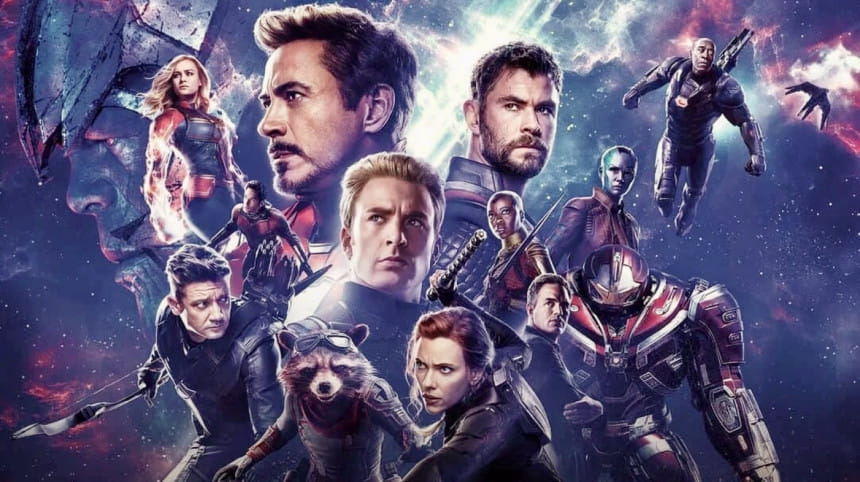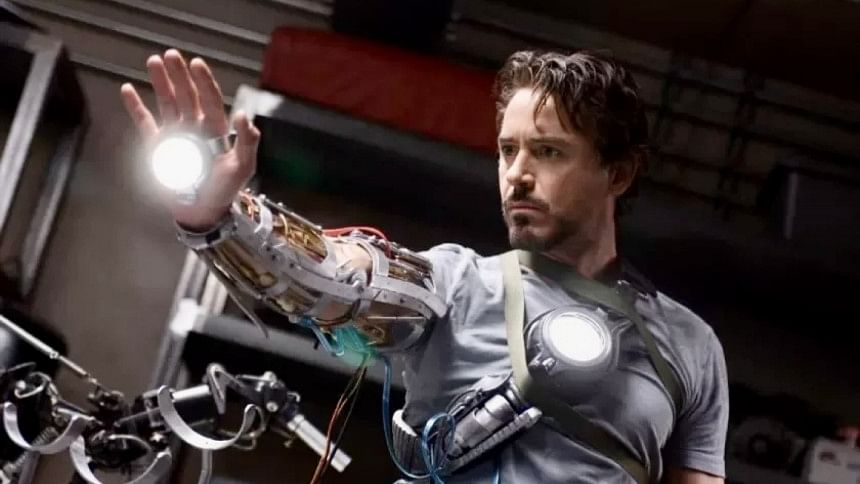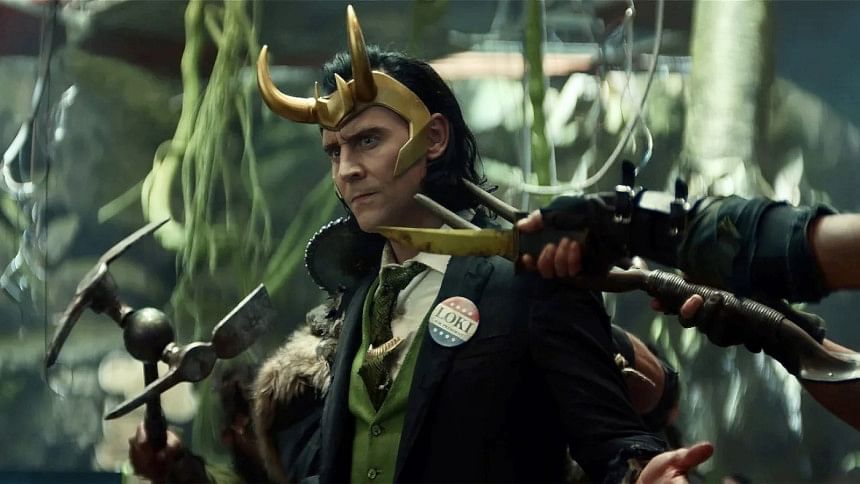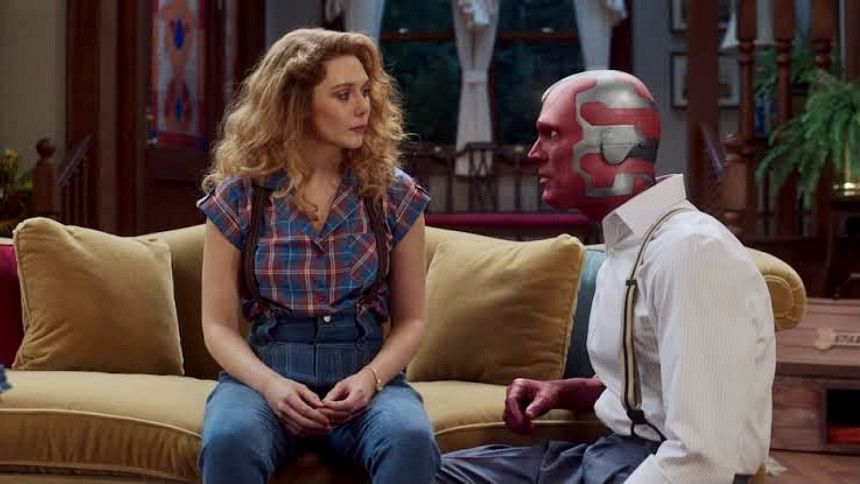The Marvel Cinematic Universe is about more than escapism

Note: This article contains spoilers for the latest Marvel television shows.
It can seem like awards ceremonies are given an inordinate amount of importance. Not only do critics, every now and then, disregard a compelling work of fiction, but the entire endeavour also begs the question: what is the purpose of awards and critical acclaim? Marvel films have been famously ignored by the critics, irrespective of the mammoth fan following and box office returns they accumulate, even though immensely successful box office hits, such as "Titanic" and "Avatar", have been known to have an impact on the Oscars. However, things seem to be changing in Phase 4 of the Marvel Cinematic Universe (MCU), led by Kevin Feige.
The MCU has been a comfort legacy for millions of viewers who formed personal bonds with the characters, ever since Robert Downey Jr graced the silver screen in 2008 as Iron Man, the dashing, witty billionaire with a moral conscience. A fan of the comics since childhood, my cousin once commented that the film version of Iron Man turned out to be much cooler and likable than what was written of him in the comics. While this could be a refutable statement, the fact remains that the MCU has a way of injecting threads of the real-life actors into their on-screen characters, thereby deepening the ties that the fans make to this genre.

The reason I formed a near obsessive bond with these films is because they offer enchantment. Superhero stories in general tend to heighten unique details about seemingly ordinary people (except billionaires and Norse Gods) and use them to do something good for the world. It's easy to come out of the theatre with starry-eyed illusions and be lost in an alluring, unreal world. However, MCU has also aged well.
While those on the outside might see little point to there being so many films one after another, the MCU consistently delivers good storytelling and character progression, and portrays the equally heightened challenges of the supernatural - in terms of moral conflicts, grief, and loss. Despite being escapist, Marvel manages to find a line connecting with reality and mirroring an amplified version of the world we are used to.

This year's Emmy nominations saw one of the latest MCU television shows, "Wandavision", garner quite a bit of critical acclaim. Each of the first seven episodes in this series references a popular sitcom from each decade starting with the 1950s, the reason for which is also neatly summarised in the eighth episode. "Wandavision" tells the heartbreaking story of a woman unable to deal with inconceivable loss and the repercussions of having powers that have given her the name "Harbinger of Chaos" in the Marvel comics. The show manages to strike a chord with so many, despite being the farthest thing from real life, because the basis on which the protagonist operates is perhaps one of the most humane feelings of all—being unable to accept defeat in the face of grief.
"Wandavision" deserves critical acclaim primarily because it executes its creative vision to perfection, backed by the powerhouse that is Disney. Further enhancing this TV experience are the performances, especially that of Elizabeth Olsen, and Kathryn Hahn, who plays Agatha Harkness, the main antagonist. The show deals with themes that are traditionally considered "feminine": love, grief, heartbreak, and a desire for family life and domesticity. It goes without saying that there is a disproportionate lack of female representation in the superhero sphere, but that seems to not only change with "Wandavision", but also shift in a way that feels authentic and unapologetic.

The series, "Loki", finished airing after the Emmy nominations. Through it, Loki, who is credited with bringing the Avengers together, gets a six-episode story that will greatly affect the impending MCU trajectory. "Loki" also serves as an in-depth character study of the God of Mischief who seemed to have been doomed to a life of being misunderstood. It is refreshing to see that in this new age of Marvel, we are being treated to the stories of not only those who had the odds in their favour from the very beginning, but also—as with "Loki" and "Wandavision"—the messier supernatural beings, and their motivations and impacts on the lives of ordinary people.
The series, "Falcon and Winter Soldier" was met with lesser acclaim, both among fans and critics. In terms of quality television, it fell short in a few departments, with arguably a premature decision of introducing a brand-new Captain America. However, this show presented some powerful political dialogue and used a critical lens to view the aftermath of the Avengers' and the mighty Thanos' actions.
It shows us the perspective of the people who sided with Thanos, paralleling the experiences of the oppressed and othered in our society. The problems of an ever-increasing population are extremely relatable, especially as it is tied to the systemic oppression that exists in our real world. The topics surrounding race in America begged to be told through the MCU, especially in light of the Black Lives Matter protests in 2020. Sam Wilson (Falcon) says to the senator, "You people have just as much power as an insane god or a misguided teenager. The question you have to ask yourself is, how are you going to use it?".
For more than a decade now, Marvel has been making films while keeping their fans at the centre of their productions. As a result, the audience feels rewarded and keeps coming back for more. It is understandable why critics do not take superhero films seriously, as they are generally considered as "fluff" content in the world of entertainment. But it is important to remember that the Academy and traditional standards of TV and cinema are imperfect. People will continue to watch the things they feel connected to and comforted by, regardless of ratings. It will not be surprising if "Wandavision" becomes the only surprising contender in terms of critics' reviews, just as "Black Panther" had been in the Oscars of 2019.
The author is a freelance journalist who enjoys books, movies, and art. Email: [email protected].

 For all latest news, follow The Daily Star's Google News channel.
For all latest news, follow The Daily Star's Google News channel. 



Comments